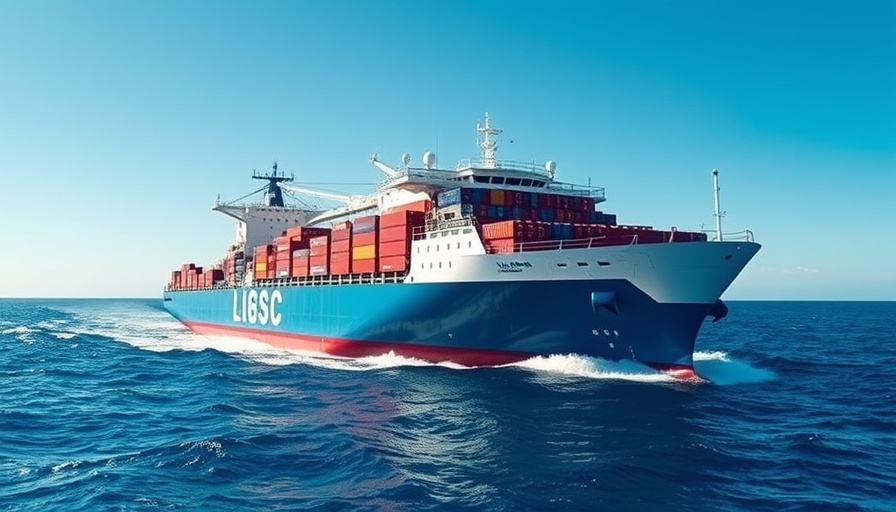
Innovative Collaboration Aims to Slash Maritime Emissions
The maritime shipping industry has long struggled with high emissions, particularly Scope 3 emissions, which encompass indirect emissions from supply chains. In an effort to tackle this pressing issue, Danish shipper Norden has partnered with Microsoft in a pioneering pilot project aimed at significantly reducing these carbon footprints via biofuel implementation. This collaboration not only highlights the potential for technological innovation in environmentally sustainable shipping practices but also reinforces Microsoft’s commitment to addressing its considerable Scope 3 emissions, which accounted for roughly 12 million metric tonnes of carbon dioxide in 2020.
Pioneering Strategies with Biofuels
Norden's approach hinges on utilizing waste-based biofuels across multiple shipping routes. This is facilitated through a novel certification mechanism known as the 'book and claim' system. This system allows businesses like Microsoft to track and claim carbon reductions from biofuels, irrespective of their shipping routes, thus encouraging a broader adoption of low-carbon fuel usage without necessitating direct collaborations with shipping companies.
According to Anne Jensen, Chief Operating Officer at Norden, this new venture underscores the shipping company's ability to assist various enterprises reliant on maritime transportation in their emissions reduction goals. The pilot is designed not only to facilitate a considerable reduction in Microsoft's maritime Scope 3 emissions—estimated to be nearly 10,000 tonnes of carbon dioxide over three years—but also to foster a scalable model for other organizations across the globe.
Implications for the Shipping Industry
The essence of the book and claim model is transformative. It enables companies grappling with limited access to sustainable fuel sources in certain geographic locales to still benefit from low-carbon technologies. Julia Fidler, environmental sustainability lead at Microsoft, noted that this initiative, along with the company's other projects, aims to develop robust registries that can credibly and transparently lower maritime supply chain emissions while enhancing the growth of sustainable fuel options.
A Shift Towards Sustainability in Global Trade
As multinational corporations face increasing pressure to incorporate sustainable practices into their operations, the adoption of biofuels in maritime logistics represents a crucial step forward. Shipping remains one of the most difficult sectors in which to effect direct emissions reductions, primarily due to infrastructural challenges associated with alternative fuels. The initiatives undertaken by Norden and Microsoft may serve as a template for future eco-friendly practices across the industry.
Moreover, with about 40% of global greenhouse gas emissions stemming from value chains, the urgency for innovative solutions like the partnership between Norden and Microsoft cannot be overstated. As corporations worldwide prioritize their sustainability agendas, exploring partnerships and strategies that align with environmental goals can profoundly influence the trajectory of global trade.
Conclusion
As more companies turn their attention to the broader impacts of their supply chain operations on the environment, the partnership between Norden and Microsoft stands as a promising example of how innovative solutions can address complex challenges in the maritime sector. Organizations involved in import and export should closely monitor these developments, as the move towards sustainable practices could reshape industry standards and expectations.
 Add Row
Add Row  Add
Add 




Write A Comment